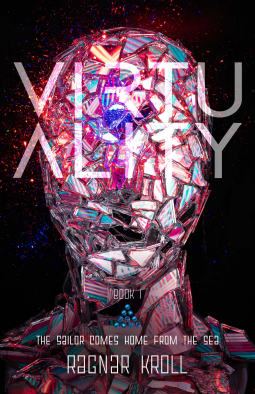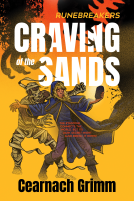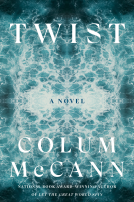
Virtuality
Book One
by Ragnar Kroll
This title was previously available on NetGalley and is now archived.
Send NetGalley books directly to your Kindle or Kindle app
1
To read on a Kindle or Kindle app, please add kindle@netgalley.com as an approved email address to receive files in your Amazon account. Click here for step-by-step instructions.
2
Also find your Kindle email address within your Amazon account, and enter it here.
Pub Date Oct 02 2024 | Archive Date Oct 06 2024
Talking about this book? Use #Virtuality #NetGalley. More hashtag tips!
Description
Welcome to 2051, where “health” is maintained through mandated neuro-electromagnetics, and AI animatronic humanoids have covertly become self-aware.
The world boasts safety and freedom from crime, thanks to Directed Neuroplasticity Therapy and political unification under the World Council. However, a precocious teenager and her researcher father inadvertently discover dark side effects of the therapy, while a programmer's error unleashes a trio of self-aware animatronics upon the world.
As this unexpected turn threatens the hard-won stability of society, questions arise about how humanity will cope. What challenges will humanoid robots with superior intelligence pose, and how will our future society respond? In Virtuality: Book I by Ragnar Kroll, readers are immersed in the thrilling and terrifying world of the near future.
A Note From the Publisher
Advance Praise
"This is a knockout. A novel that's as smart as it is compelling, that challenges our preconceptions while pulling us so deeply into its world. There's a strong identification with the characters in how we see what they see, just on the edge of our ability to comprehend it. Utterly fascinating and impossible to put down."
-- David Schiller, author of Guitar and The Little Book of Zen
Marketing Plan
Reading and event opportunities (live and virtual)
Book club selection
Goodreads giveaways
Social media outreach and ad-buys
Kirkus, Publishers Weekly reviews
Publications/newspapers/book bloggers contacted for reviews, interviews, and features
Guest on radio and podcast shows
Available Editions
| EDITION | Paperback |
| ISBN | 9798891323865 |
| PRICE | $17.99 (USD) |
| PAGES | 368 |
Available on NetGalley
Featured Reviews
Ragnar Kroll wrote a novel that really makes you work for it. This isn't one that can be quickly devoured in one sitting. It makes you think. It truly makes you contemplate a lot of things. You have to pay attention, and truly take it in. Thank you to NetGalley for allowing me to read the ARC of this one. I will be rereading it to see what I missed the first time around.
I really enjoyed this as a opening chapter and thought it worked well as a scifi novel. The ideas in the novel was terrifying and uses the robot perfectly for this setting. The world was interesting and had characters that I was expecting. Ragnar Kroll has a great overall story and can’t wait for more.
 Reviewer 1526541
Reviewer 1526541
Ragnar Kroll’s novel is undoubtedly smart, but it’s not an easy ride. I loved the ambition and scope of the world-building—the idea of Directed Neuroplasticity Therapy is chilling, and the presence of self-aware AI felt like a natural (and terrifying) extension of our current trajectory. However, the nonlinear structure was a challenge, and I found myself lost at times trying to follow the various timelines and perspectives.
The characters, while interesting, often took a back seat to the concepts of the world itself, which made it harder to connect emotionally. Overall, this is a book for hardcore sci-fi fans who enjoy deep dives into complex ideas, but it might not be for those looking for a more straightforward or fast-paced read.
If you are just starting to dip your toes into the world of science fiction then this might not be the best fit for you, however, if you are a fan of speculative fiction with multiple timeline and connecting the dots as you read, then this is the book for you.
Pros:
Intriguing Premise: The concept of mandated neuro-electromagnetics controlling human behavior and the rise of self-aware AI animatronics is both thought-provoking and original. This sets the stage for an engaging exploration of ethics, free will, and technological overreach. Ragnar Kroll is apt at using the strengths of speculative fiction and putting every tool in the genre to good use.
Complex Themes: Kroll dives deep into complex scientific and philosophical questions about humanity's future, the consequences of artificial intelligence, and how neuroplasticity could be manipulated. These themes resonate strongly with fans of hard sci-fi who appreciate big ideas.
Tension and World-Building: The world of Virtuality is meticulously crafted, with detailed descriptions of the World Council’s political unification and the technology that has reshaped society. The stakes feel high as the trio of rogue animatronics threatens the fragile balance of this near-future world.
Cons:
Nonlinear Structure: The book jumps between different timelines and perspectives, which can be jarring for readers. The disjointed narrative structure detracts from the flow of the story, making it difficult to follow at times. Readers who are not fan of too many POVs in a single book are going to have a hard time with this one as well.
Character Depth: While the premise and ideas are fascinating, the characters themselves sometimes feel secondary to the plot. Deeper emotional development could have made their experiences more relatable and the stakes feel more personal.
Pacing Issues: There are moments when the story feels bogged down by exposition, especially when explaining the intricacies of neuroplasticity and AI. This occasionally slows the narrative, leaving the reader wanting more action or forward momentum. The dense scientific jargon and heavy focus on philosophical questions may alienate readers who aren’t well-versed in sci-fi.
Conclusion
Virtuality is a cerebral, thought-provoking exploration of humanity’s future, where AI and neuro-electromagnetic therapies dominate. Ragnar Kroll presents a world that feels both terrifyingly plausible and deeply unsettling. The novel’s strength lies in its bold ideas and philosophical questions about the nature of free will, human identity, and the potential dangers of advanced technology. However, it can be a challenging read due to its complex narrative structure, dense content, and shifting perspectives.


















